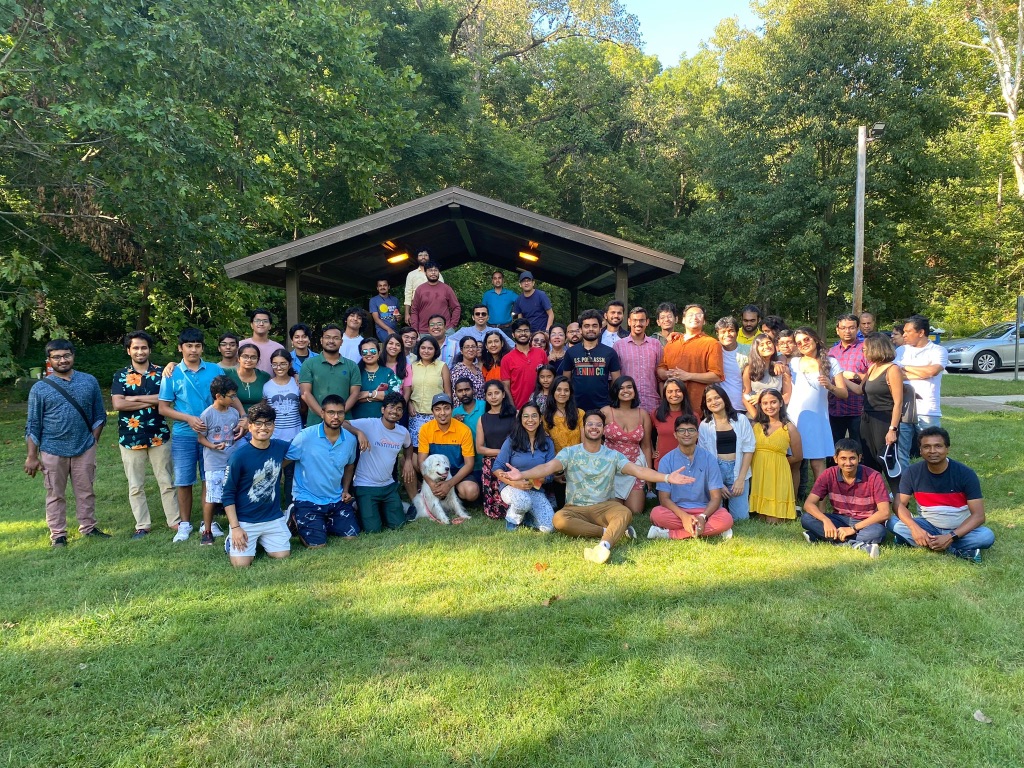The Bengali Student Organization wanted to celebrate International Mother Language Day by gathering together a group of students from various language backgrounds to celebrate their culture, identity, and language and asking, “what does your language mean to you?” I spoke with two University of Illinois students, Utsav Majumdar, a graduate student in industrial engineering, and Anwesha Chakravarti, a PhD student in statistics, about what this group means to them and the important video project they just created to celebrate International Mother Language Day.
This interview has been edited for length and clarity.
Smile Politely: What is your role and what drew you to the Bengali Students Organization?
Utsav Majumdar: I am the cultural secretary in the Bengali Student Organization (AbolTabol). What drew me to the organization is the sheer enthusiasm of the group with respect to any events. Every member in the group is extremely proactive in their own way and try their best to contribute in all events, and that energy, quite frankly, is extremely contagious. Besides that, the fact that I can connect myself back to my Bengali roots within a community that welcomes and encourages everyone to express themselves, is something I believe very few groups can achieve.
Anwesha Chakravarti: I am the secretary for Abol Tabol. As a Bengali, I grew up surrounded with cultural events. Particularly during Durga Puja (which is our biggest festival) we would always be a part of a hundred cultural events like dancing, singing, and acting in plays. Being so far from home, I found myself craving for this sense of community. This yearning drew me towards Abol Tabol, a group of like-minded Bengalis sharing our culture and reveling in everything it means to be a Bengali.
SP: What is your favorite thing about this organization?
Majumdar: Personally, the energy the community exudes on the eve of any big event. For example, we will be celebrating our flagship event, Poila Boishakh, on April 21st. There is this air of excitement on what new to do this year, what music or dance to rehearse, and how to make this event an even bigger success than last year.
Chakravarti: My favorite thing about the organization are all the people I had a chance to meet who have now become such close friends and have made a generally lonely PhD life filled with fun.
SP: What is the significance of February 21st?
Majumdar: On February 21st, we celebrate International Mother Language Day, where we pay homage to our mother tongue and its significance in shaping our culture. Historically speaking, much like a lot of countries who have had their own struggles in preserving their language and ipso facto their identity, in 1952, Bangladesh had to go through similar strife to defend their right to speak Bangla. Multiple Bengalis gave their lives to preserve Bangla against state repression to impose Urdu as the sole language. On February 21st, we acknowledge this and pay reverence to our respective mother tongue and UNESCO has officially recognized this day as a worldwide observance to promote linguistic awareness and cultural diversity.
SP: Your organization just released a video to celebrate international Mother Language Day. Can you tell me about it?
Majumdar: We realize how important language is, in all aspects of our lives, and this is something that transcends just Bengali language. Language is something that is fundamentally a core of our civilization. From the more accessible languages like English, to the more esoteric whistling language of Kickapoo, each language acts more like the DNA of an entire culture’s history and existence. The beauty of language is in its duality. It can serve as something extremely personal for an individual and it also serves as a blueprint of an entire society. In fact, even the music of a region is heavily dependent on how a language is structured, be it the amphibrachic structure of Spanish, to the Scotch snaps of Anglic languages. Since we have a cohort of students from a diverse range of communities, we wanted to make a video to capture what their mother tongue means to them on a personal level.
Chakravarti: For International Mother language day we made a video in which we asked a couple of our friends what their mother tongue meant to them. Since Abol Tabol was created with an idea of shared language, we thought of making a video showing the power of having a common language.
SP: It sounds like a huge undertaking. What was the hardest part of creating a project like this?
Chakravarti: The toughest part was making sense of the vague idea we had. Pooja, our president, really nailed down the project’s vision. I am sure the editing was also very difficult, but our friend Shounak did a fabulous job at it.
SP: What is your favorite thing to do in Champaign-Urbana?
Chakravarti: Dance has always been a passion of mine, and through Abol Tabol, I’ve found companions who share my enthusiasm. We have been making dance reels together which has quickly become a highlight of my time here. We have some of these videos up on our YouTube channel, do check them out! Additionally, cooking with my roommates has been another cherished activity.








